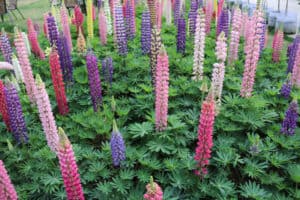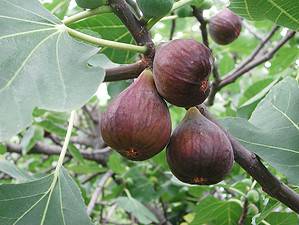If you’ve ever grown cucumbers, squash, pumpkins, or melons in your garden, you have likely run into the pesky squash bug. Their scientific name is Anasa tristis. These gray, flat bugs love to hide in dark places and come out and feast on your tender squash plants. They prefer winter squash and pumpkins, but they will come after your watermelon and cucumber plants with vigor as well.
These bugs are so destructive they can completely wipe out your carefully tended plants, leaving them wilted and dry. The best strategy against these invaders is prevention. Once they are numerous in your garden, they are hard to control. When planning your garden this year, you can get a start on preventing squash bugs by incorporating plants that repel these pesky bugs. Read on for nine plants to repel squash bugs.
1. Marigolds
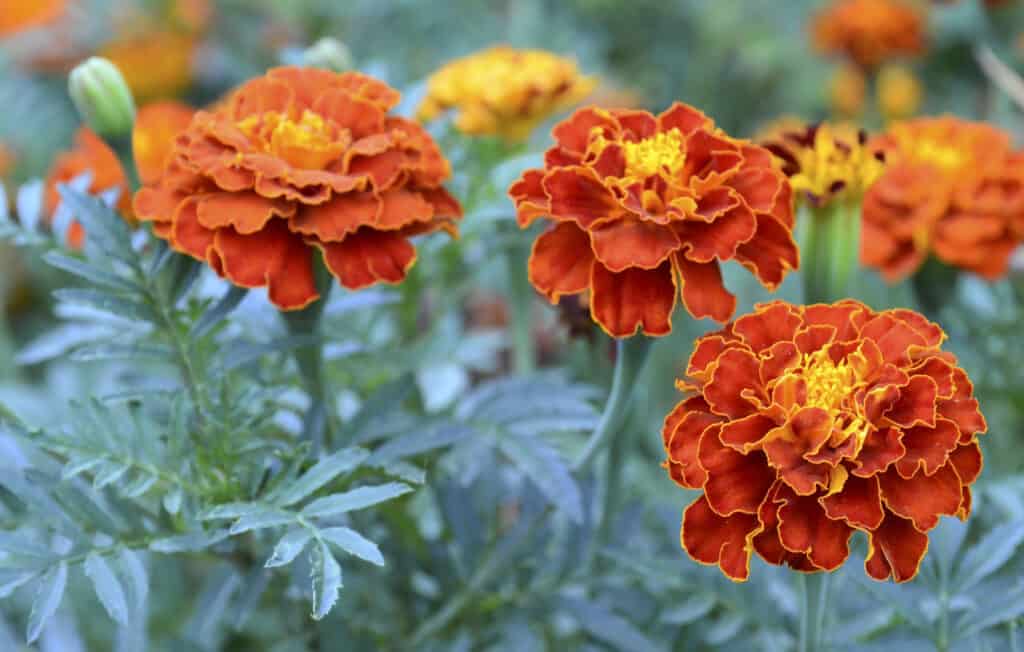
Marigolds are easy-to-care-for plants known to repel insects.
©iStock.com/svf74
These bright and cheerful blooms are known to repel a variety of insects, including squash bugs. Plant marigolds in the perimeter of your garden or between rows of crops. There are many varieties of marigolds, be sure to choose a scented type if you’re using it to repel pests. Marigolds need full sun to partial shade and fertile soil.
2. Mint
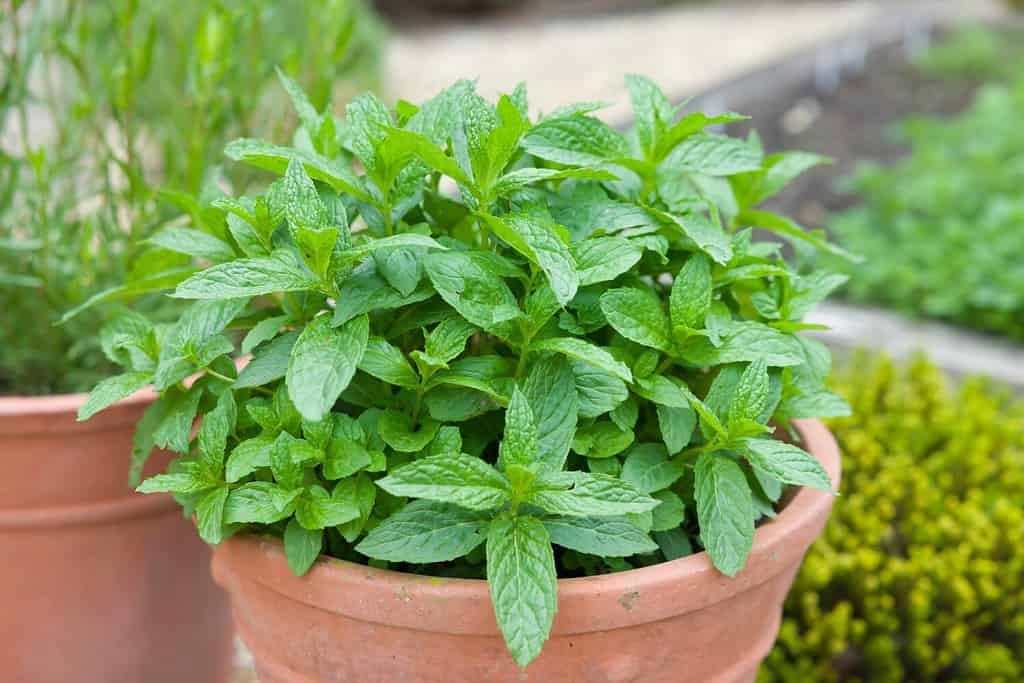
This great-smelling herb is so easy to grow that it may spread through your yard if you plant it directly in the ground.
©Paul Maguire/Shutterstock.com
Mint is another plant known to repel many insects. While easy to grow, you will want to be careful where you plant it as it can spread easily, even to areas where you may not want it to go. Mint spreads by its roots, so planting the herb in pots is a great way to keep it from overtaking your garden.
3. Dill
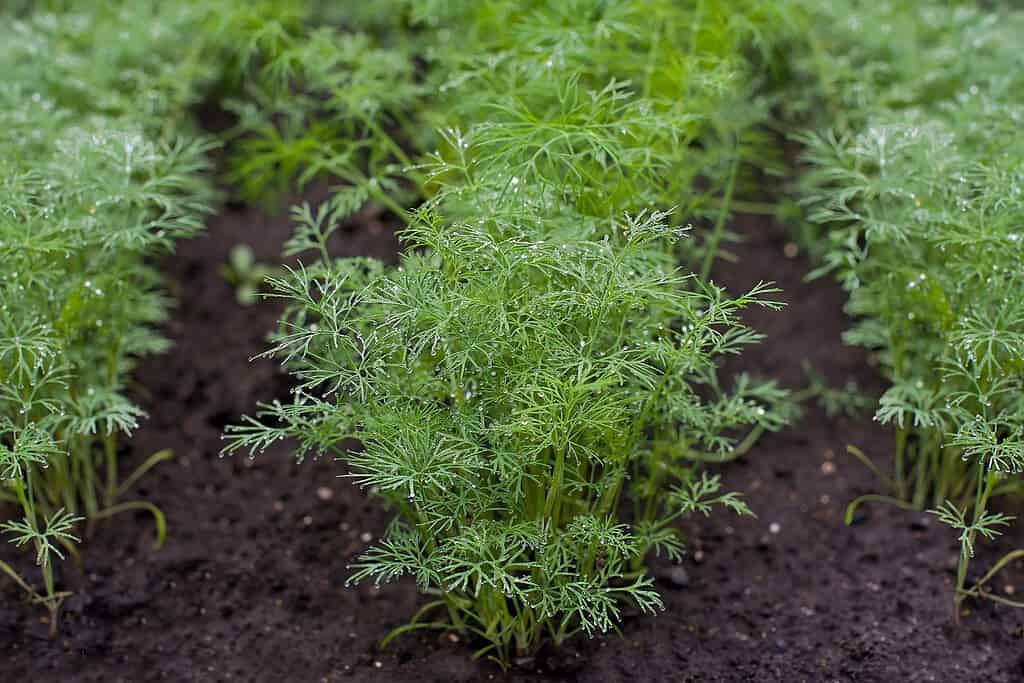
This fragrant herb will repel pests while attracting beneficial insects.
©PaniYani/Shutterstock.com
Dill not only repels pests but also attracts beneficial insects that will help pollinate your squash flowers. You can grow dill from seed directly into the ground as it doesn’t do well with transplanting.
4. Chives
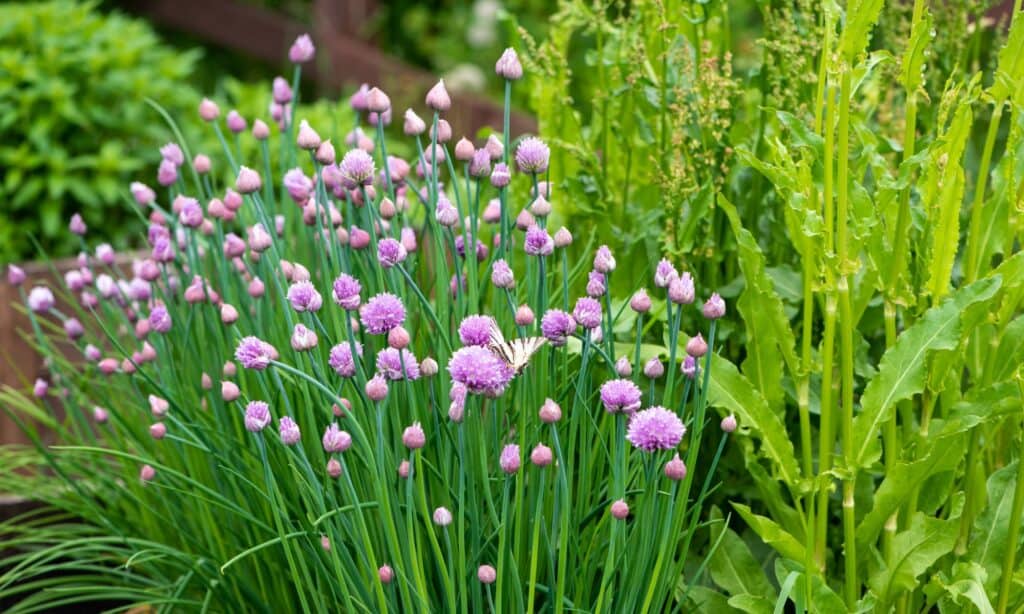
Chives are resilient and will come back each year in your garden.
©iStock.com/Svetlana Monyakova
This useful herb will come back every year after you plant it. Chives do best in full sun and well-drained soil. Aside from squash bugs, chive plants are known to repel aphids, Japanese beetles, and rabbits.
5. Bee Balm
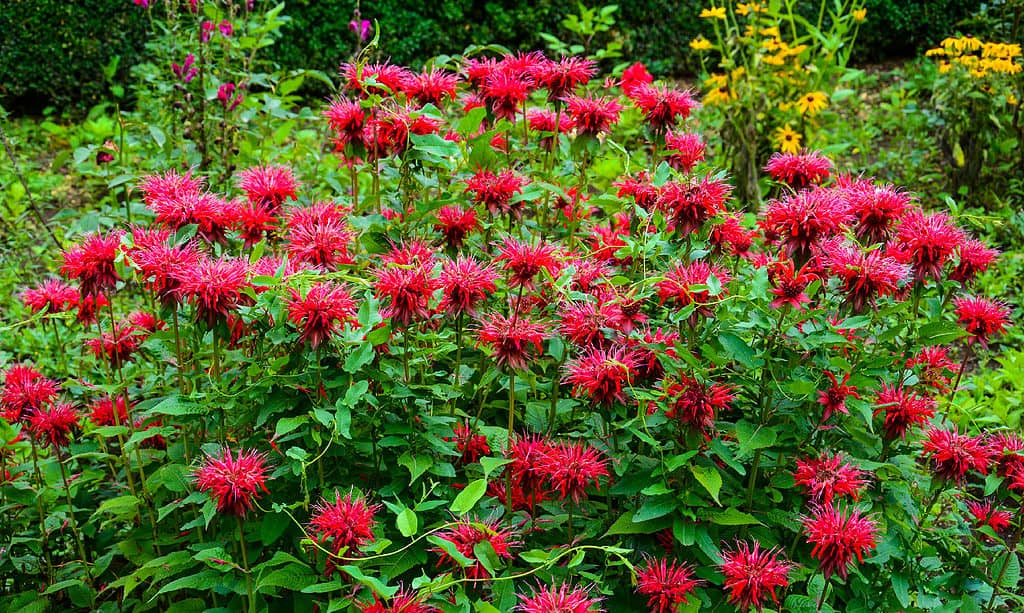
This attractive flowering plant is a member of the mint family.
©Vahan Abrahamyan/Shutterstock.com
This beautiful flowering plant does best in full sun but will tolerate partial shade. Bee balm is known to repel squash bugs and attract beneficial insects. For example, the Tachinid fly is attracted to bee balm. These insects lay eggs on the squash bugs and when their larvae emerge, they eat the squash bugs.
6. Oregeno
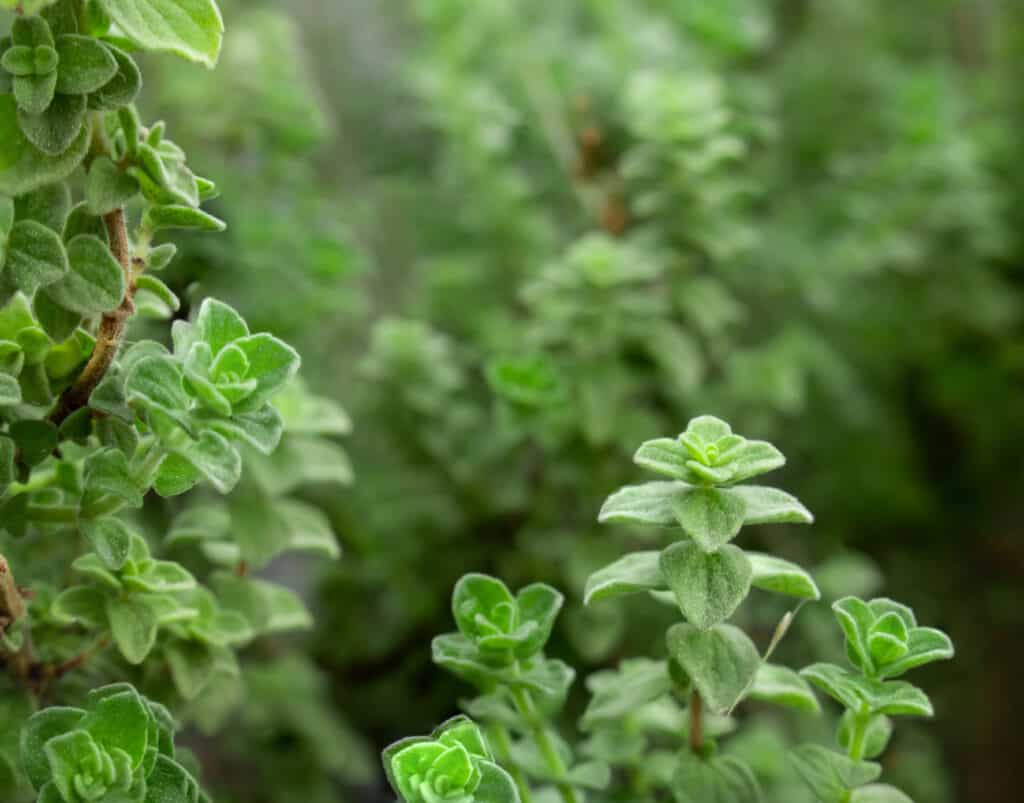
The aromatic oregano herb is known to repel squash bugs.
©Artem Kontratiev/Shutterstock.com
Oregano is a strong-smelling, useful herb in the mint family. It will continue to come back every year after you plant it. Squash bugs and other harmful insects don’t like the scent of the leaves. Oregano grows well in full sun and well-drained soil. Its pretty lavender flowers will attract bees and butterflies.
7. Catnip
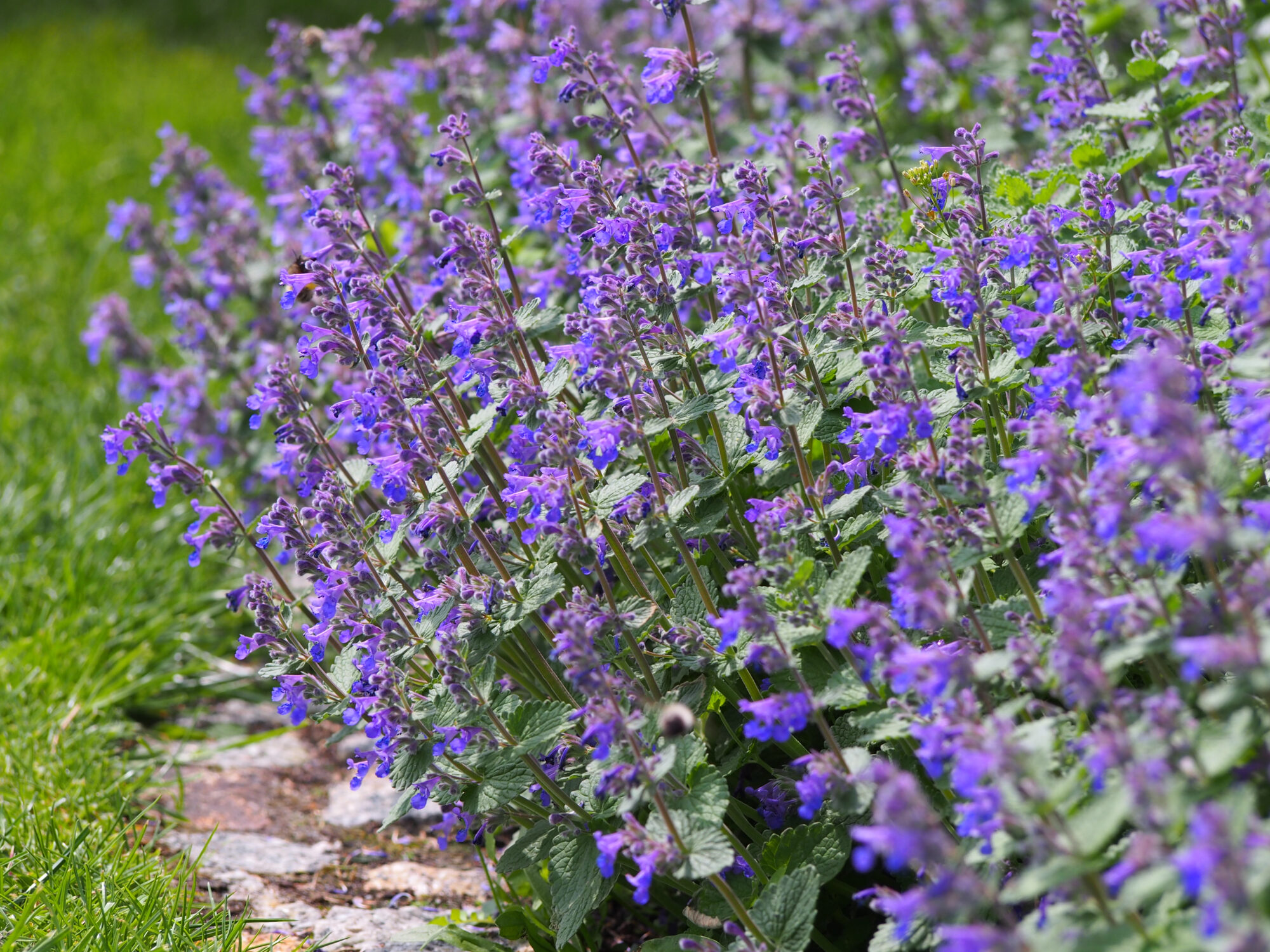
Plant catnip in your garden to repel harmful insects, like the squash bugs.
©Anna Gratys/Shutterstock.com
Cats may love catnip, but many insects don’t. Aside from squash bugs, catnip will also deter mosquitoes. This easy-to-grow perennial is also drought-tolerant.
8. Tansy
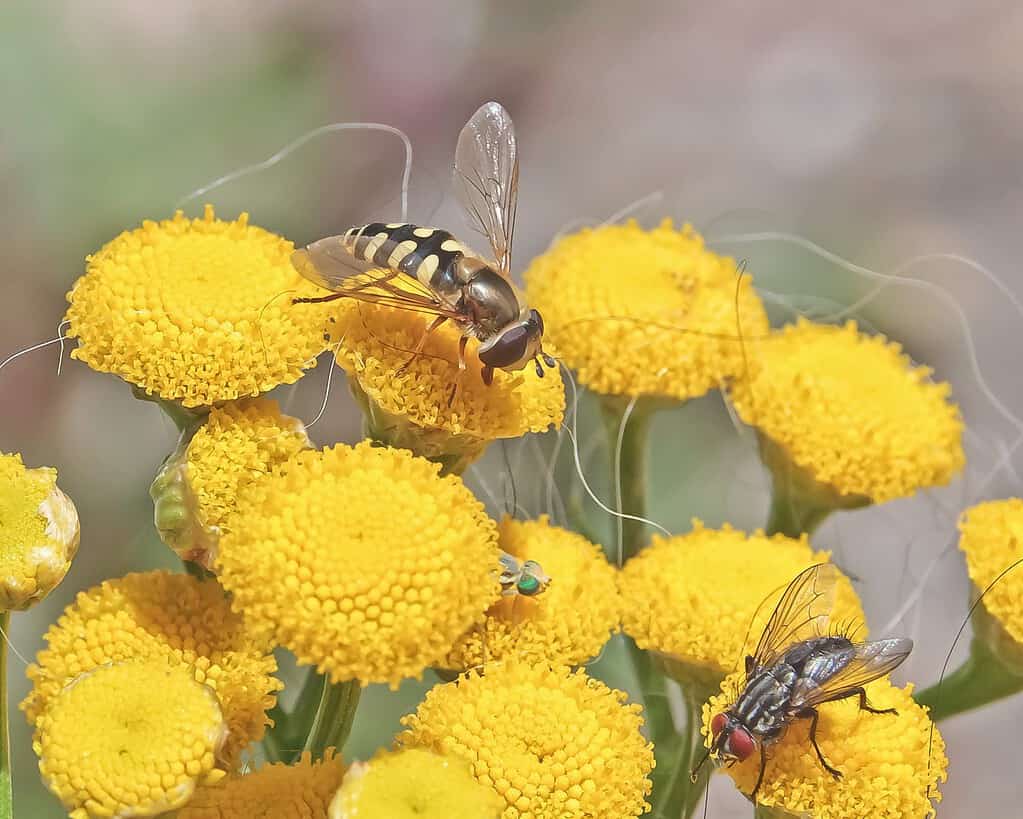
Plant tansy in your garden for beautiful summer blooms that will attract beneficial insects and repel pests.
©Alex Puddephatt/Shutterstock.com
This pretty yellow herb is a perennial in the sunflower family. Tansy has long been used as an insect repellent dating back to the Middle Ages.
9. Garlic
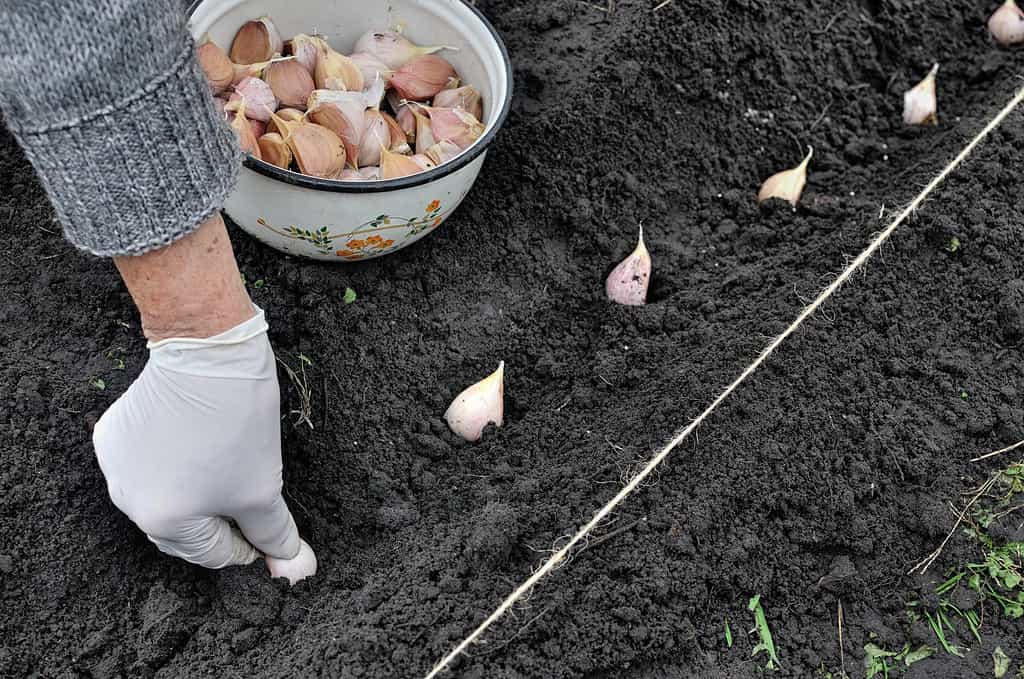
This bulbous flowering plant can be planted in the spring or fall.
©yuris/Shutterstock.com
Garlic is an excellent companion plant for many crops. Easy to grow, it’s known to deter squash bugs, aphids, and Japanese beetles. Plant cloves in your garden where they will get full sun.
Other Ways to Repel Squash Bugs

Removing the eggs from your plants early on can help prevent an infestation of squash bugs.
©Andrii Salomatin/Shutterstock.com
Aside from companion plants, there are other ways to repel squash bugs before they get a hold in your garden. Be sure to remove plant debris each fall to keep the critters from overwintering and coming out in the summer when your squash starts growing. You can also grow your vine plants on trellises. Squash bugs are less likely to infest a trellis.
Another tactic is to place boards around your squash crops. The insects like to hide under the boards overnight. You can flip the boards over in the morning and drop the bugs into soapy water.
Remember, early prevention is the key. Keep an eye on your plants being sure to check the underside of leaves for eggs. Squash bug eggs are red and will be stuck to the leaf. If you have a small amount of them, you can hand-pick and crush them. A larger infestation can be controlled with an insecticidal soap spray.
The photo featured at the top of this post is © iStock.com/EzumeImages
Thank you for reading! Have some feedback for us? Contact the AZ Animals editorial team.




